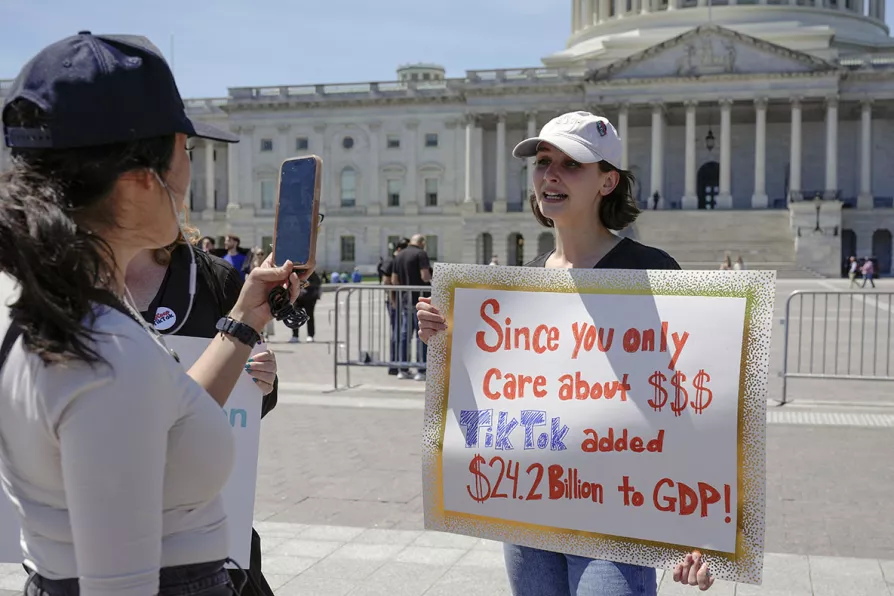Biden signs legislation threatening to ban TikTok unless Chinese owner sells the social media platform

 TikTok ban
TikTok ban
LEGISLATION to ban social media platform TikTok in the United States unless it is sold by its Chinese owner was signed into law by President Joe Biden last night.
Passed by the Senate late on Tuesday, the measure is part of a $95 billion (£76.3bn) package of war aid to Israel, Ukraine and Taiwan approved by 79 votes to 18.
Republicans in the House of Representatives decided last week to attach the TikTok Bill to the war funding package after negotiations with the Senate, where an earlier version of the measure had stalled.
More from this author










